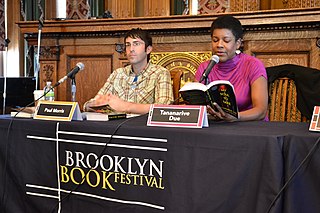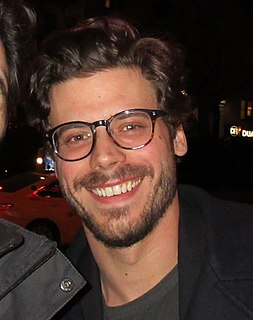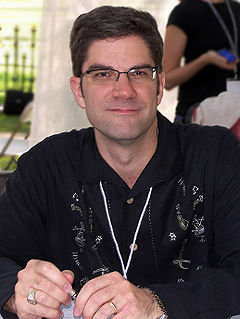A Quote by Rooney Mara
As an actor, you can't just be in the film. You're also in charge of selling it, and so you have to sell yourself, and you have to be very political and make sure to not say the wrong things. It's exhausting.
Related Quotes
I try to be true to myself yet still at the same time look at comments and look at what the fans have to say and kind of put it in perspective. I'm never someone whose not open for opinion, I'm always just down to make it work and see how we can do things but at the end of the day I always want to make sure it represents me. It's really about just being humble and not selling yourself on being there already.
I tell my students based on my experiences in Hollywood, sure, you can always move to L.A. and try to work with the system, and people do that, but chances are if you want your story in film with characters of color, you will have to make that movie yourself. Find a way to make it yourself. Not just screenwriters, but also producers.
For me, filmmaking is an ongoing self-reflection process. I kind of push everything to the edge. I feel very exposed and fragile when I make a film. It's a process of dealing with loneliness. And it's also very dramatic - because while you are working on a film, you just realize how incapable you are of dealing with all these things. And you open yourself up, and it's like your heart is utterly exposed. And it's very tiring on a daily basis.
We do objectify women in our culture. We're starting to objectify men a little bit more. And there is nothing wrong with that. Objectify maybe is the wrong word. Celebrate their bodies and use beautiful men, beautiful women as a tool to get your attention and to sell things. But no-one - we're very, very uncomfortable in our culture with looking at a naked man. You know, naked women are everywhere, selling everything. And again, this is quite sexist. But naked men make us nervous.
I hate political films that have one particular message that they're trying to convey. I think propaganda is very dangerous, and it's very easy for anything to slip into it. I also think that propaganda is something that defies the identity of cinema. I hate propaganda in cinema, even if it was promoting the political stance that I myself am allied with. I always say that the responsibility of a film is first and foremost: To be a film. It's not a manifesto, it's not an op-ed.
...There is no end to the making and selling of things there is no end to the making and selling of things there is no end... Man, it occurs to me, is a joyful, buying-and-selling piece of work. I have been wrong, dead wrong, when I've decried consumerism. Consumerism is what we are. It is, in a sense, a holy impulse. A human being is someone who joyfully goes in pursuit of things, brings them home, then immediately starts planning how to get more.
I came out of a culture in which my uncle, my father - they were all salesmen of one kind or another. My father was a manufacturer. He also, in effect, had to sell that stuff. And if he didn't literally do it, his men did. So, selling was in the air through my boyhood. The whole idea of successfully selling was very important.
No one forces me, or any other writer, to sell a film option on the books. If you don't want to run the risk that the filmmakers may adapt your work in a way you don't like, then you don't sell the option. You know when you sell it that they will have to make some changes, just because film and TV are different media than books.
I would say any film can be called feminist that has female characters who have agency in their life, that are in charge of their fate or do important things or take up half the space. I would consider a film feminist, I don't care what it's about, but if the cast was gender balanced, where it would be just as likely that the boss or the best friend or whoever was female. It's really as simple as showing women being in charge of their destiny and giving female characters a voice.



































